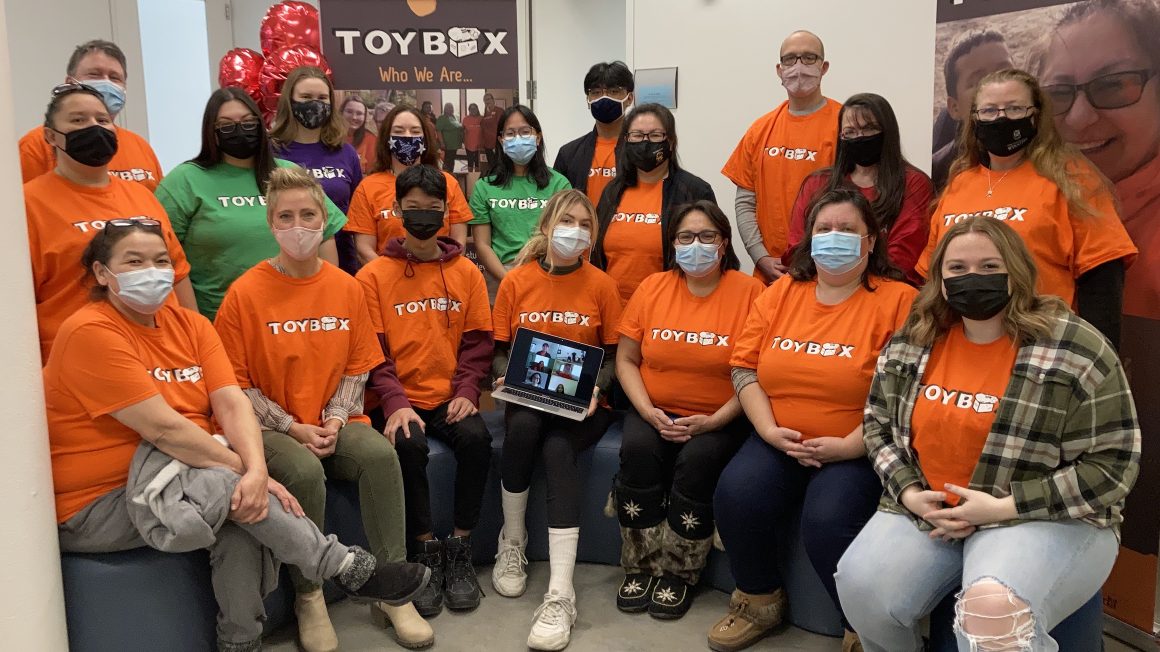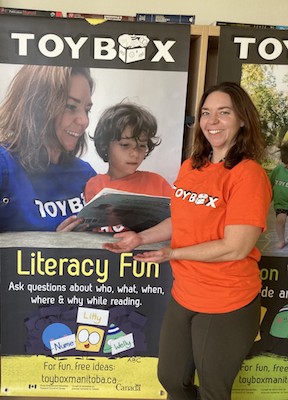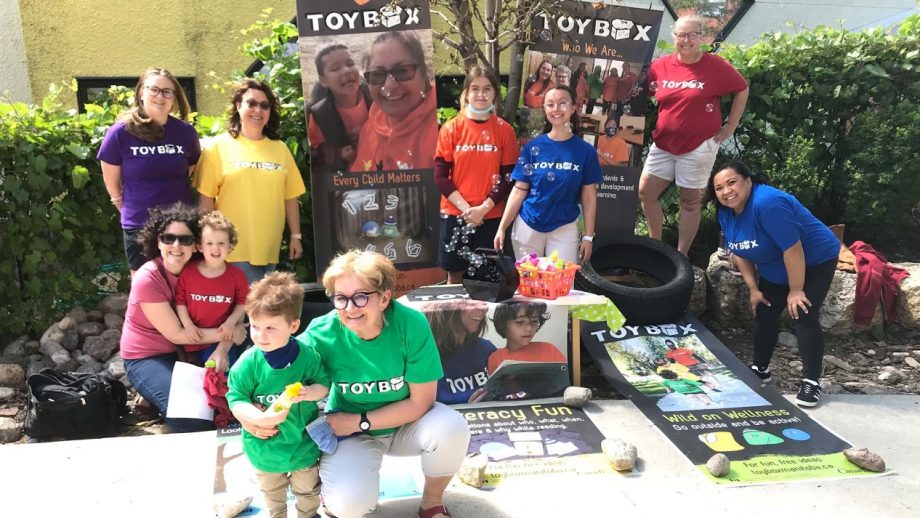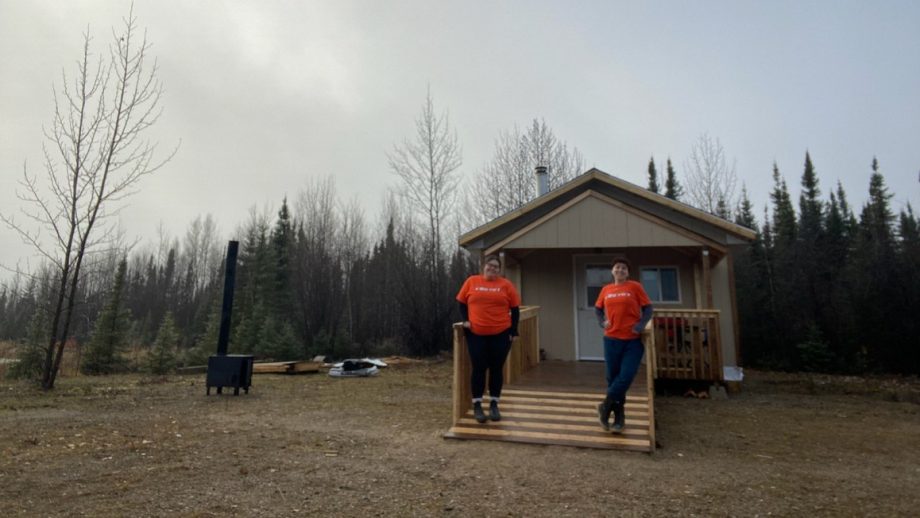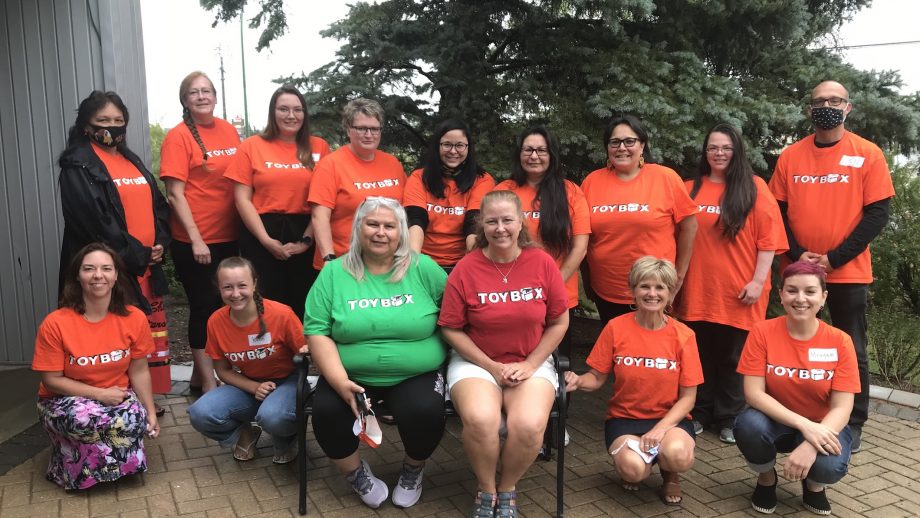ToyBox Manitoba is asking families to test and provide feedback on new strategies they’re releasing this winter.
Led by Dr. Sheri-Lynn Skwarchuk, the project aims at helping parents improve their children’s numeracy and literacy skills, as well as their wellness. People can sign up to test the strategies by visiting ToyBox Manitoba’s website or by following them on Facebook and Instagram.
The Toybox strategies are key to early learning and preparing young children for school.
Sarah Melo
This round of testing specifically focuses on strategies based around letter knowledge, number magnitude and counting, and physical wellness.
“All of these strategies are research based,” said Dr. Skwarchuk. “We’re looking for as many participants as possible to sign up and let us know how the strategies work for their children.”
Sarah Melo has been working with the project since it took off. A teacher at École Julie-Riel in the Louis Riel School Division, she’s also a researcher who’s studied how to help parents teach their children math in a fun and easy way.
As an educator and mom to three children, she’s found the ToyBox Manitoba project to be a great resource for herself.
“The Toybox strategies are key to early learning and preparing young children for school,” she said. “My kids enjoyed the activities and I wish I had access to them since they were really young.”
Even as an educator, Melo says she’s found it difficult to know what to do with her very young children to help them learn letters and numbers. Melo developed her own website (MeloMath4Kids.ca) to share videos and blogs of her family’s learning journeys.
By giving parents a free educational resource, she believes it will help build relationships and knowledge.
“ToyBox provides many natural ideas to help kids learn in a fun and interactive way while building the relationship between caregivers and children,” she said. “The wellness strategies are great too as they give parents permission to take healthy breaks.”
A new home and partnership
As ToyBox Manitoba has grown, so has the need for a new space to house the project.
Thanks to Dr. Hugh Grant, Dean of the Faculty of Business and Economics, the project now has a home on the main floor of the Buhler Centre.
“ToyBox is exactly the type of innovative, socially-responsible venture that business programs should support,” said Dr. Grant.
“This new space will give us a place to showcase our work and have more of a presence on campus,” said Dr. Skwarchuk. “I can’t say how grateful we are for the business faculty helping us.”
Along with the new space, Dr. Ken Reimer, Faculty of Education, has spearheaded a partnership that has faculty members and students assisting in the progression of the project.
One of the first collaborations was business students using ToyBox as a test case for business planning.
“We’ve been able to recruit business expertise into our project,” Skwarchuk said. “They’re able to give us their knowledge of how to build us and grow our educational input for the community and researchers.”
ToyBox has also partnered with the Department of Psychology and, at some point, Skwarchuk hopes to bring psychology, education, and business students together for some cross-faculty collaboration.
As 2022 begins, the team hopes to make progress on the app and include some in-person testing, if COVID allows, with organizations, in addition to strategy testing.
If you’d like to test ToyBox’s new set of free, fun, evidence-based strategies in literacy, numeracy, and wellness, please sign up by emailing ToyBox@uwinnipeg.ca or visiting the official ToyBox Manitoba website.
ToyBox Manitoba is supported by a research grant from the Social Sciences and Humanities Research Council.

